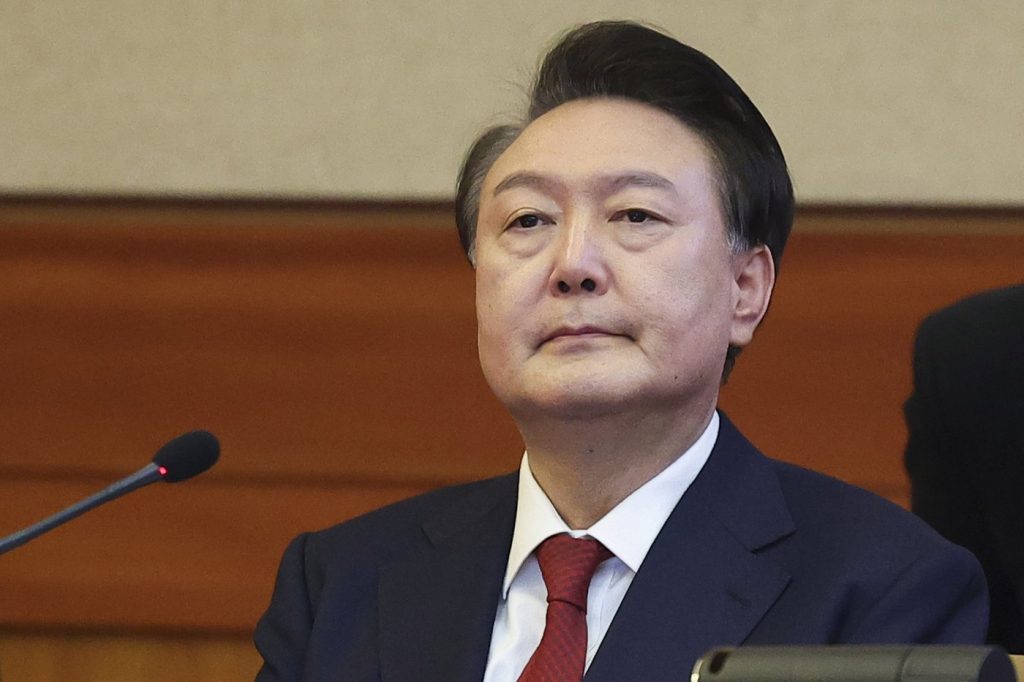SEOUL, South Korea (AP) – Former South Korean President Yoon Suk Yeol appeared before the Constitutional Court on Tuesday to defend against impeachment charges related to his controversial martial law decree last month. This marked his first public appearance since he became the first sitting president in South Korea to be detained over this unprecedented action, which has sparked immense political turmoil in the nation.
Yoon, who imposed martial law on December 3, 2024, sent military and police forces to surround the National Assembly in an effort to prevent lawmakers from voting to reject his decree. However, a sufficient number of lawmakers managed to breach the encirclement, enabling them to vote unanimously against the martial law, prompting the Cabinet to rescind the measure by early the following morning.
In court, Yoon asserted that his military deployment was not an attempt to inhibit the National Assembly's operations but rather a preemptive measure aimed at the majority liberal opposition Democratic Party. He accused the Democratic Party of obstructing his governance and undermining critical budget proposals. Yoon had earlier described the Assembly as a "den of criminals" and expressed his intent to eradicate what he termed "shameless North Korea followers and anti-state forces."
Contrary to Yoon's claims, commanders of the units deployed to the Assembly published conflicting accounts. Kwak Jong-keun, the commander of a special forces unit, testified that Yoon directly ordered him to forcefully remove lawmakers from the Assembly by destroying the door, a command he ultimately refused to follow.
When asked if he had directed the military to remove lawmakers, Yoon denied giving such an order, insisting that the lawmakers would have had the opportunity to reconvene elsewhere to annul the decree. He also claimed there would have been public outrage had he attempted to interfere with the legislative vote directly, stating, "If I had obstructed the vote, I think I wouldn't have been able to handle the consequences." Additionally, when questioned about a memo reportedly outlining plans for an emergency legislative body prior to the martial law declaration, Yoon denied its existence.
On December 14, 2024, the National Assembly impeached Yoon, consequently suspending his presidential powers. The Constitutional Court has until June 2025 to determine whether to formally dismiss him or restore him to office. However, legal experts predict that a decision may come sooner. In a parallel investigation, law enforcement agencies are scrutinizing whether Yoon and others might face charges of rebellion, abuse of power, or other crimes linked to the martial law declaration. Under South Korean law, a rebellion charge could result in severe penalties, including life imprisonment or the death penalty.
Yoon had previously rebuffed several attempts to question him regarding the martial law enforcement, preferring to stay within the confines of his presidential residence in Seoul. Meanwhile, several high-ranking officials, including his defense minister and police chief, were arrested over their roles in executing the martial law order. Yoon was eventually detained on January 15, 2025, following a police mobilization near his residence.
While South Korean presidents enjoy substantial immunity from prosecution while in office, this protection does not extend to accusations of rebellion or treason. Yoon's martial law declaration has notably shaken South Korea's diplomatic relations, financial markets, and altered its international reputation as a vibrant democracy.
As the political landscape becomes increasingly polarized, Yoon's assertiveness and the opposing party's efforts to unseat him have exacerbated existing divisions within South Korean society. Recently, violence erupted when Yoon's supporters stormed a Seoul district court, damaging property and clashing with police. The unrest resulted in injuries to 17 police officers, with 46 protesters taken into custody. The unfolding political situation continues to capture widespread attention, both domestically and internationally.










